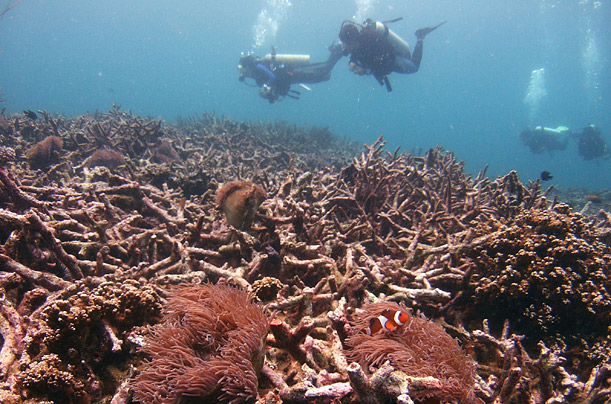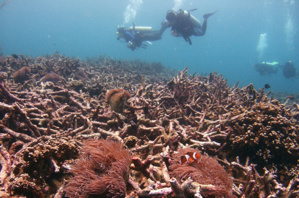New York – 16 July 2015 – The Friday issue of the “Science magazine” published a ‘warning’ by the researchers who urge the world to curb the emissions of carbon dioxide. Otherwise, they fear that various natural resources like the oceans along with other service provider of the humanity will undergo:
“...massive and mostly irreversible impacts”.
The report claims that by the year of 2100, the impacts if the carbon emissions will be experienced even in the regions of low-carbon emission, whereby there is a rise of temperature “below two degrees C” due the global warming. Moreover, the effects of such futuristic prediction are already visible “on key marine and coastal organisms and ecosystems”, whereby the report states:
“These impacts will occur across all latitudes, making this a global concern beyond the north/south divide”.
Under the collaborated effort of leading twenty two marine scientists, the report took its synthesised shape, wherein “warming and acidification of surface ocean waters” has been stressed on. In fact, the scientists believe that the excess accumulation of carbon dioxide in the atmosphere will proportionately pollute the oceans. Already, the coral reefs of tropical regions along with “mid-latitude seagrass”, and “high-latitude” sea dwellers like krill and Pteropods besides fin-fishes and bivalves who live in the mid-latitude oceans are getting affected.
The acidification of oceans can prove fatal for the S.I.D.S or Small Island Developing States along with people who are dependent on various specific fisheries and other sea organisms to earn their living. Almost a decade ago from now, “handful of researchers” began to study the “biological impacts of ocean acidification”. Consequently, their findings raised the first alarm of concern whereby more people sought to explore the topic in more depth and with detailed experiments.
Subsequently, over a thousand study reports were published, the latest one on the Science magazine is one such report. These various studies have established the fact that “in a high CO2 world” the marine ecosystem will take face the brunt of its dire consequences resulting in damages of various marine species, which will ultimately cause serious repercussions on the human society.
So far, from the year of 1750, with the rise of the industrial phase of Europe, the carbon dioxide emissions have risen steadily, adding 90% of “additional heat” into the atmosphere. Sadly enough, “nearly a third of the CO2 produced” till date have been absorbed by the oceans. Consequently, the “chemistry of the seas” is rapidly undergoing change the like of which was witness about a “250 million years ago”, when cataclysmic natural phenomena, named the “Great Dying”, was set in motion.
With the dwindling window of opportunity to protect and repair the ocean damages caused by the increasing level of CO2, the options left before the humanity is getting reduced to naught. The lead of author of the recent study on oceans, Mr. Jean-Pierre Gattuso laments:
“The ocean has been minimally considered at previous climate negotiations. Our study provides compelling arguments for a radical change at the U.N. conference (in Paris) on climate change”.
At present, an immediate action for the reduction of CO2 emission needs to be taken for under the present scenario, a rise of “less than two degrees” in ocean temperature has be harmful for “many marine ecosystems”.
References:
http://www.ipsnews.net/2015/07/drastic-co2-cuts-needed-to-save-oceans/






